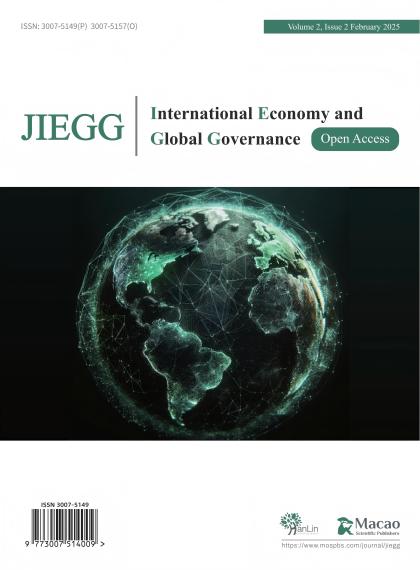-
Abbott, K. W., & Snidal, D. (2000). Hard and soft law in international governance. International Organization, 54(3), 421-456.
-
Baumann, M. O., Haug, S., & Weinlich, S. (2024). From developing country to superpower? China, power shifts and the United Nations development pillar. Global Policy, 15, 51-61.
-
Breslin, S. (2013). China and the global order: signalling threat or friendship? International Affairs, 89(3), 615-634.
-
Driessen, M., & Zhu, R. (2024). Chinese standards from the ground up. China Information, 38(2), 135-156.
-
Duggan, N., & Naarajärvi, T. (2015). China in global food security governance. Journal of Contemporary China, 24(95), 943-960.
-
Fägersten, B., & Rühlig, T. (2019). China’s standard power and its geopolitical implications for Europe. Swedish Institute of International Affairs.
-
Gamito, M. C. (2023). The influence of China in AI governance through standardisation. Telecommunications Policy, 47(10), 102673.
-
Glaser, C. (2011). Will China's rise lead to war? Why realism does not mean pessimism. Foreign Affairs, 80-91.
-
Gómez-Tatay, L., & Hernández-Andreu, J. M. (2019). Biosafety and biosecurity in synthetic biology: a review. Critical reviews in environmental science and technology, 49(17), 1587-1621.
-
Gronvall, G. K., Wang, L., McGrath, P. F., Cicero, A. J., Yuan, Y., Parker, M. I., ... & Trotochaud, M. (2022). The biological weapons convention should endorse the Tianjin Biosecurity Guidelines for Codes of Conduct. Trends in microbiology, 30(12), 1119-1120.
-
Hameiri, S., & Zeng, J. (2020). State transformation and China’s engagement in global governance: the case of nuclear technologies. The Pacific Review, 33(6), 900-930.
-
Hongyi, L. (2021). The role and logic of nontraditional security in China’s engagement in global governance mechanisms under Xi Jinping’s Regime. Journal of Chinese Political Science, 26(3), 505-523.
-
Hopewell, K. (2025). Challenging the status quo-revisionist power dichotomy: China and the United States in the trade regime. Review of International Political Economy, 1-23.
-
Ikenberry, G. J. (2008). The rise of China and the future of the West-Can the liberal system survive. Foreign Affairs., 87, 23.
-
Johnston, A. I. (2003). Is China a status quo power?. International Security, 27(4), 5-56.
-
Kahler, M. (2013). Rising powers and global governance: negotiating change in a resilient status quo. International Affairs, 89(3), 711-729.
-
Keiper, F., & Atanassova, A. (2020). Regulation of synthetic biology: developments under the convention on biological diversity and its protocols. Frontiers in bioengineering and biotechnology, 310.
-
Koremenos, B., Lipson, C., & Snidal, D. (2001). The rational design of international institutions. International Organization, 55(4), 761-799.
-
Lai, H. E., Canavan, C., Cameron, L., Moore, S., Danchenko, M., Kuiken, T., ... & Freemont, P. S. (2019). Synthetic biology and the United Nations. Trends in Biotechnology, 37(11), 1146-1151.
-
Li, J., Zhao, H., Zheng, L., & An, W. (2021). Advances in synthetic biology and biosafety governance. Frontiers in bioengineering and biotechnology, 9, 598087.
-
Luo, X. & Cheng, R. (2013). Regional and country distribution studies of international science and technology organizations. Science and Technology Management Research, 33(2), 237-241. (罗学优 & 程如烟. (2013). 国际科技组织的地区和国别分布研究. 科技管理研究, 33(2), 237-241.)
-
Ministry of Foreign Affairs of the People’s Republic of China, Promoting Responsible Biological Research: Working Document on The Tianjin Biosecurity Guidelines for Codes of Conduct for Scientists,https://www.mfa.gov.cn/wjb_673085/zzjg_673183/jks_674633/zclc_674645/hwhsh_674653/202311/t20231115_11180648.shtml(中华人民共和国外交部,关于倡导负责任的生物科研:《科学家生物安全行为准则天津指南》的工作文件)。
-
Namdeo, S. K., & Zhang, J. Y. (2024). Rethinking science diplomacy and global biosecurity: challenges, emerging practices and the way forward. International Affairs, 100(6), 2623-2635.
-
Novossiolova, T., Bakanidze, L., & Perkins, D. (2019). Effective and comprehensive governance of biological risks: A network of networks approach for sustainable capacity building. In Synthetic biology 2020: Frontiers in risk analysis and governance (pp. 313-349). Cham: Springer International Publishing.
-
Paradise, J. F. (2019). China’s quest for global economic governance reform. Journal of Chinese Political Science, 24(3), 471-493.
-
Peng, Y. (2020). The Era of Synthetic Biology: Biosecurity, Biosecurity and Governance. Journal of International Security Studies, 38(5), 29-57. (彭耀进. (2020). 合成生物学时代:生物安全、生物安保与治理. 国际安全研究, 38(5), 29-57.)
-
Qian, J., Vreeland, J. R., & Zhao, J. (2023). The impact of China's AIIB on the World Bank. International Organization, 77(1), 217-237.
-
Rabitz, F. (2025). A theory of international technology regulation. Review of International Studies, 1-18.
-
Rühlig, T. (2023). Chinese influence through technical standardization power. Journal of Contemporary China, 32(139), 54-72.
-
Russel, D. R., & Berger, B. H. (2021). Stacking the deck: China's influence in international technology standards setting. Asia Society Policy Institute.
-
Schott, L., & Schaefer, K. J. (2023). Acceptance of Chinese latecomers' technological contributions in international ICT standardization—The role of origin, experience and collaboration. Research Policy, 52(1), 104656.
-
Secretariat of the Convention on Biological Diversity. 2022. Synthetic Biology. CBD Technical Series No. 100. Montreal, 196 pages.
-
Sun, T., Song, J., Wang, M., Zhao, C., & Zhang, W. (2022). Challenges and recent progress in the governance of biosecurity risks in the era of synthetic biology. Journal of Biosafety and Biosecurity, 4(1), 59-67.
-
Tallberg, J., Erman, E., Furendal, M., Geith, J., Klamberg, M., & Lundgren, M. (2023). The global governance of artificial intelligence: Next steps for empirical and normative research. International Studies Review, 25(3), viad040.
-
Trump, B. D. (2017). Synthetic biology regulation and governance: Lessons from TAPIC for the United States, European Union, and Singapore. Health Policy, 121(11), 1139-1146.
-
Wang, C., & Zhou, W. (2023). A political anatomy of China’s compliance in WTO disputes. Journal of Contemporary China, 32(143), 811-827.
-
Wang, F., & Zhang, W. (2019). Synthetic biology: recent progress, biosafety and biosecurity concerns, and possible solutions. Journal of Biosafety and Biosecurity, 1(1), 22-30.
-
Wang, L., Song, J., & Zhang, W. (2021). Tianjin Biosecurity Guidelines for codes of conduct for scientists: Promoting responsible sciences and strengthening biosecurity governance. Journal of Biosafety and Biosecurity, 3(2), 82-83.
-
World Economic Forum. Global Technology Governance Report 2021, https://www.weforum.org/publications/global-technology-governance-report-2021/
-
Xue, L. (2023). International Rule-making in the Field of Emerging Technologies: Path Selection and Participation Strategies. Frontiers, (19), 15-21. (薛澜.(2023).新兴科技领域国际规则制定:路径选择与参与策略. 人民论坛·学术前沿, (19), 15-21.)
-
Yang, J. (2022). Understanding China’s changing engagement in global climate governance: a struggle for identity. Asia Europe Journal, 20(4), 357-376.

